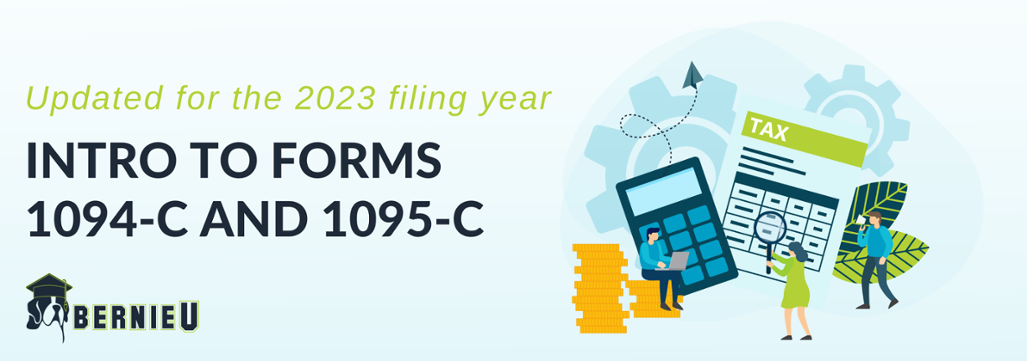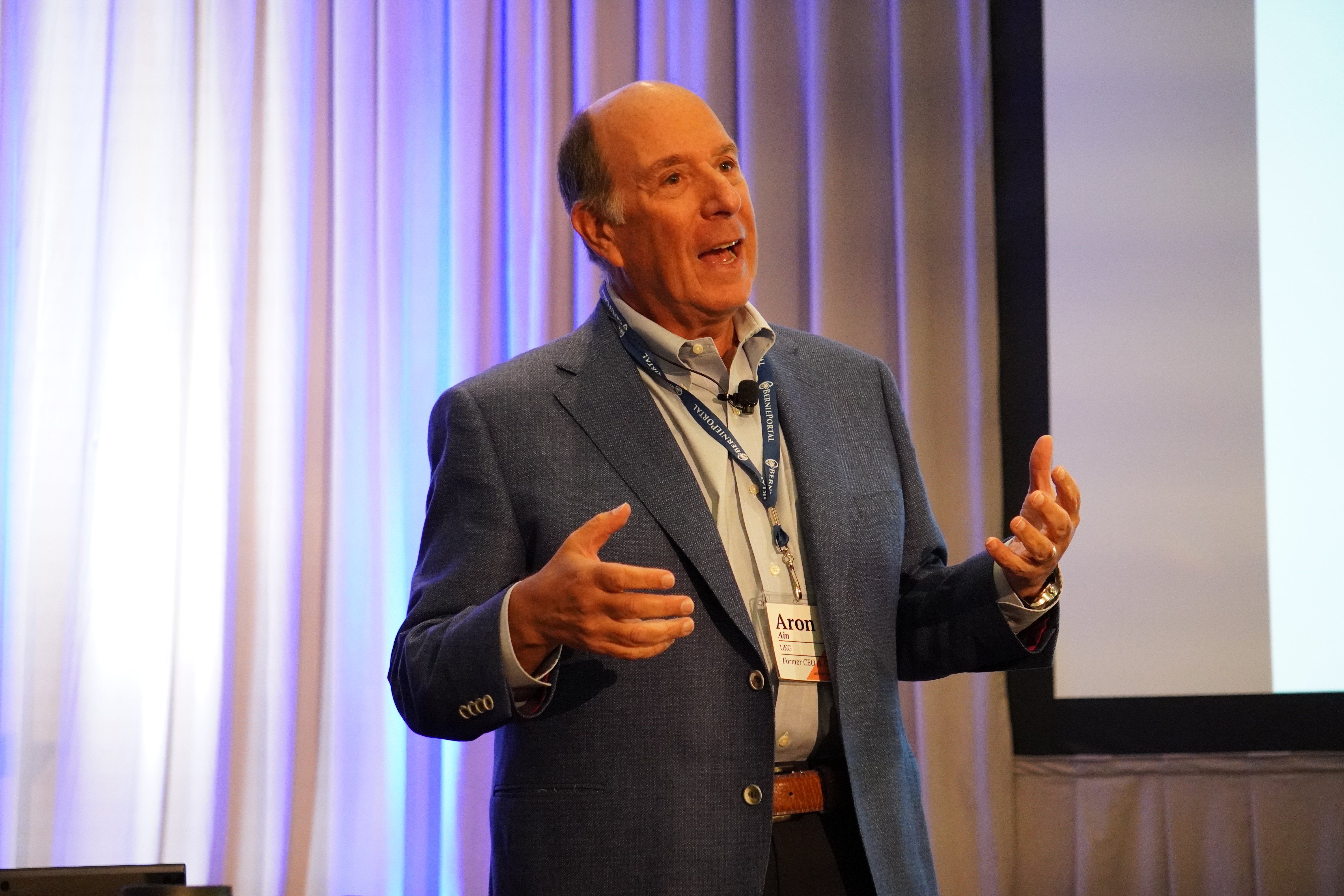Written by
Bretton Chatham
Bretton is an aPHR-certified member of the Marketing Team at Bernard Health. He writes about HR, compliance, and benefits solutions.
How to Answer 1095-C FAQs from Employees

HR pros know Affordable Care Act (ACA) compliance can get complicated. Even if you’re up to date on ACA reporting, you can still expect plenty of questions from employees during this time of year.
So, here’s how HR can address some of the most frequently asked questions about 1095-Cs.
Q: What is a 1095-C?
The Affordable Care Act requires employers with 50 or more full-time equivalent employees to offer healthcare coverage to full-time employees or potentially face a fine. Form 1095-C is the government’s way of tracking this information. Similar to the W-2, your 1095-C will be used to file your taxes and communicate your health insurance information.
Q: What information is on Form 1095-C?
Form 1095-C includes information about the health insurance coverage that an individual’s employer offered and whether or not the employee enrolled in that coverage. It also includes the employee’s required contribution as a share of the lowest-cost premium for individual coverage. Information on Form 1095-C is used to determine eligibility for the premium tax credit.
Q: Who receives a Form 1095-C?
All full-time employees of Applicable Large Employers (ALEs) as well as any employee who was enrolled in the employer-sponsored health insurance plan should receive these forms. An Applicable Large Employer is any employer with more than 50 full-time employees—working an average of 30 or more hours per week—or full-time equivalents.
Q: When will I get the 1095-C?
Employees will receive their 1095-Cs on or before March 2, 2022. Although in years past, the deadline was January 31, it was usually extended to March 2 anyway. Beginning in 2022, March 2 will be the permanent deadline for employers to distribute copies to employees.
Q: How will I receive my Form 1095-C?
Employers will mail or hand deliver these forms to employees or send them electronically if they have consented to electronic delivery.
Q: Do I need to wait for my Form 1095-C to file my income tax return?
According to the IRS, although information from Form 1095-C can help employees in determining eligibility for the premium tax credit, it is not necessary to have the form to file their individual income tax return.
You will, however, need the form if you received a tax credit or plan to receive a tax credit on your return, or if you had a gap in coverage of more than three consecutive months. If these do not apply to you, you will just need to check a box indicating you were offered coverage and keep your 1095-C for your own records.
Q: What should I do with Form 1095-C?
In short, employees don’t need to do much with this form. Since the issuers of the forms send the information to the IRS separately, employees should keep the forms for their records.
Q: I’ve also heard of people receiving 1095-A and 1095-B. What are those?
Form 1095-A is distributed to people who received insurance through a federal or state marketplace. Form 1095-B is distributed to people who received insurance through small, self-funded groups, employers who use the Small Business Health Options Program, and fully-insured employer-sponsored plans.
Q: Why did I get more than one Form 1095-C?
If you had coverage from more than one provider, worked for more than one employer who offered coverage, or changed coverage or employers, you might receive more than one form. Another reason is if your family members receive coverage from different providers, according to the IRS.
Q: What if I had gaps in coverage?
If an employee has questions about gaps in coverage, share the following information:
Beginning in 2019, the federal penalty for individuals who fail to purchase comprehensive coverage in the previous tax year became $0. While the federal penalty is $0, some states have chosen to implement additional penalties:
- California: Beginning in January 2020, California requires individuals who can afford it and their dependents to have ACA-compliant coverage or face a penalty of 2.5% of their household income—or $800 per adult and $400 per minor dependent, whichever is greater.
- Massachusetts: Since 2006—before the ACA became federal law—Massachusetts has required individuals to have affordable health insurance, now defined by ACA standards. The penalty can be up to 50% of the monthly premium of the lowest-cost plan for which they would have qualified. There is no penalty if your income is at or below 150% of the poverty level.
- New Jersey: The maximum penalty since 2019 has been based on the average cost of a “bronze” plan in the state of New Jersey.
- Rhode Island: The penalty is either 2.5% of annual household income or $695 per adult and $347.50 per child, whichever is greater.
- Washington, D.C.: The penalty since 2019 has been 2.5% of annual household income—or $695 per adult and $347.50 per child, whichever is greater.
- Vermont: Since 2020, Vermont’s individual mandate requires residents to maintain minimum essential coverage. However, there is no penalty for non-compliance. Instead, this information is compiled and used by the state to provide targeted outreach to help applicable residents enroll in appropriate and affordable coverage.
Q: Where can I learn more about Form 1095-C?
Individuals can learn more about the 1095-C by visiting the IRS website's page on 1095-C Forms.
Additional Resources
You can stay informed, educated, and up-to-date with HR compliance and other important topics using BerniePortal’s comprehensive resources:
- BerniePortal Blog—a one-stop-shop for HR industry news
- HR Glossary—featuring the most common HR terms, acronyms, and compliance
- HR Guides—essential pillars, covering an extensive list of comprehensive HR topics
- BernieU—free online HR courses, approved for SHRM and HRCI recertification credit
- HR Party of One—our popular YouTube series and podcast, covering emerging HR trends and enduring HR topics
Written by
Bretton Chatham
Bretton is an aPHR-certified member of the Marketing Team at Bernard Health. He writes about HR, compliance, and benefits solutions.
Related Posts
We just wrapped up another phenomenal Weekdays with Bernie (WWB) Conference!
Employees are the heart and soul of an organization, and valuing their opinions can have...
HR parties of one already have an abundance of tasks to keep up with. From hiring to...
The talent search is no longer a skirmish or a battle. It’s a WAR! As a strategic HR...







Submit a Comment